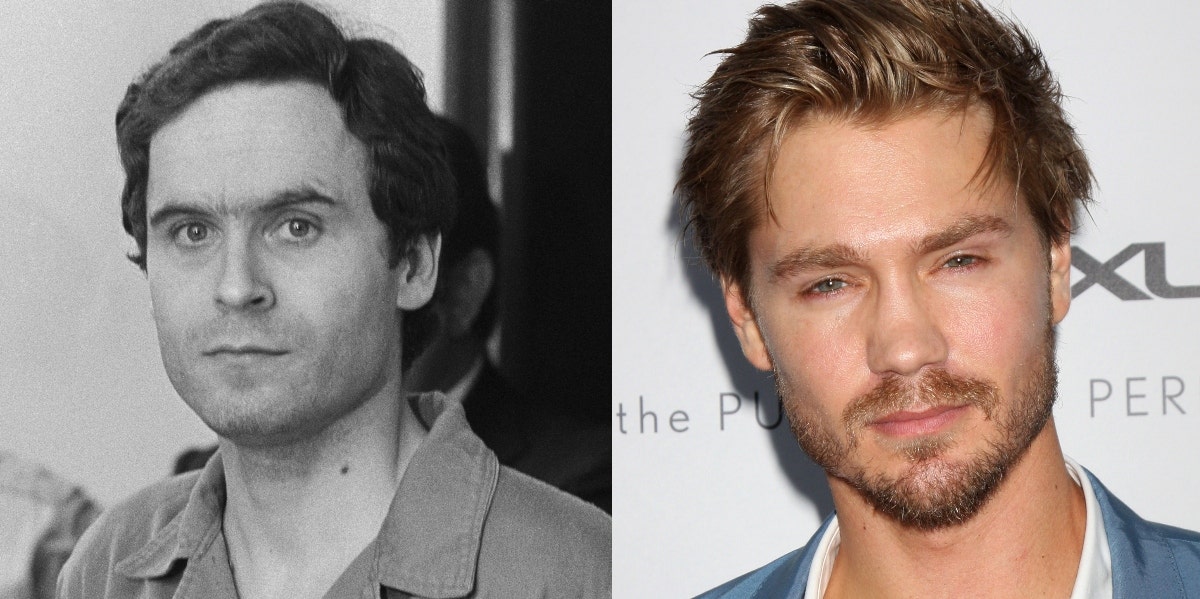Ted Bundy Doesn't Need Two More Movies Glamorizing His Crimes & Undermining His Victims
The obsession needs to end.
 Getty Images / Kathy Hutchins / Shutterstock
Getty Images / Kathy Hutchins / Shutterstock Does the world need more Ted Bundy movies? That’s the question many film fans are asking with the release of two competing movie trailers within 48 hours of each other.
Amber Sealey’s “No Man Of God” will star Elijah Wood as FBI analyst Bill Hagmaier, exploring his relationship with Bundy, played by Luke Kirby.
Meanwhile, Chad Micheal Murray will take on the prolific serial killer in “Ted Bundy: American Boogeyman.”
Why are the new Ted Bundy movies being criticized?
Thirty-two years after his death by electric chair, Bundy is as omnipresent as ever.
2019 revived a problematic fascination with the man who confessed to 30 murders and rapes — though police believe there may have been dozens of more victims.
Director Joe Berlinger brought us “Extremely Wicked, Shockingly Evil and Vile” — starring Zac Efron as a suave Bundy — and the Netflix docuseries “Conversations With a Killer: The Ted Bundy Tapes.”
In this new generation of Bundy-obsessed true-crime fans, the killer is a Hollywood heartthrob played by Murray and Efron — who were our teenage celebrity crushes — and Kirby, a photoshopped version of the real Bundy.
On the surface, the directors at the helm of these productions have done little to rewrite the dangerous press cycle that followed Bundy in the 1970s that focused on his attractiveness and made his crimes part of his allure.
But there's a problem with Hollywood’s depiction of Ted Bundy.
“Extremely Wicked, Shockingly Evil and Vile” was profusely criticized for its characterization of a charming, impossible to resist version of Bundy. This has left critics with an unforgivable feeling of deja vu towards these new iterations of the same story.
Repeatedly, Efron and Berlinger defended their version of Bundy, arguing that the movie should teach viewers to look beyond physical appearance when it comes to trusting strangers.
The implication here is that Bundy’s victims could have saved themselves if only they weren’t so caught up in his charm, and overlooks the unavoidable threat of a man who killed many of his victims in their sleep.
Even Sealey, the director of “No Man Of God,” had her own gripe with Berlinger’s Bundy.
“They make him out to be a male model — so smart, so charismatic, a master of disguise,” Sealey said last month. “I don’t see that. When I look at him and I watch interviews and I listen to the tapes, I see a deeply insecure, needy — almost like an incel — kind of guy who just wants accolades and wants people to tell him how great he is.”
But if her version of Bundy’s story is intended to right the wrongs of Hollywood’s past, she might have missed the mark.
Instead of making a point to deconstruct and critique our strange tendency to glorify men like Bundy, the movies risk compounding our mythologization of him.
Regardless of their intent, the movies place Bundy at the center of the narrative and make the women he murdered mere side characters in his story.
Instead of looking at the dozens of stories cut short by this brutal, worthless man, we’re invited to stare into Bundy’s eyes and thrall.
His predation becomes a source of entertainment that has now been played out so many times that audiences risk becoming desensitized.
True crime movies work because they play into a human need to make sense of the world but, in dissecting Bundy’s crimes, we risk attempting to rationalize the unfathomable.
But perhaps the most disturbing part of all of these films and docuseries is that they give Bundy exactly what he wanted.
Bundy was, at heart, a narcissistic misogynist who is widely suspected to have loved his notoriety.
Making many movies of his life that are dominated by his voice and feature women as marginalized characters is probably exactly how he would have written the story himself.
Alice Kelly is a writer living in Brooklyn, New York. Catch her covering all things social justice, news, and entertainment. Keep up with her Twitter for more.

